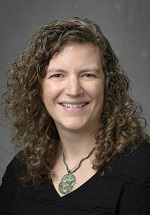
Linda Prokopy
Purdue University
Linda Prokopy (PI) is an interdisciplinary social scientist, Department Head and Professor in the Horticulture and Landscape Architecture department at Purdue University and is the Project Director of the Diverse Corn Belt project. Her research focuses on diversifying our agricultural landscape to be more sustainable for the environment, for farmers, and for communities. Linda has three children who keep her busy outside of work and is actively engaged in her community. In her “spare” time, Linda loves to read and hike in the woods.
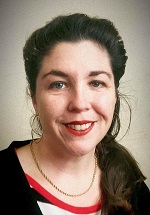
Emily Usher
Purdue University
Emily Usher is a natural resource social scientist working at Purdue University as the Project Manager for the Diverse Corn Belt project. Originally from the Midwest, Emily values the environmental, economic and social opportunities our natural environment provides. Understanding the balance between these three components drives her research interests in motivators and barriers to practice adoption, public policy development, and community engagement. Outside of work, Emily likes to garden and spend time with her family, friends, and dog.
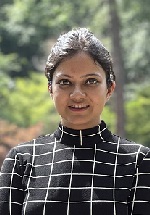
Shivika Aggrawal
Purdue University
Shivika is a Lynn Fellow (PhD) and am associated with both the Interdisciplinary Ecological Sciences and Engineering (ESE) Graduate Program and Horticulture & Landscape Architecture (HLA) Department. With an academic background in Civil Engineering and Sociology, Shivika likes to work at the intersection of Engineering, Environment, and Social Sciences with a focus on water issues meshed in agricultural landscapes. Her research interests include cross-disciplinary investigation of resilience in agricultural riskscapes with a focus on social dilemmas, environmental uncertainty, design of soft infrastructure (governance regimes, literacy), knowledge-policy interaction, and integration-to-implementation sciences (i2S) approach. Prior to her current pursuits, Shivika worked at the Central Building Research Institute (CSIR-CBRI) and Shobhit University in India and served as a Research Advisor for the interdisciplinary project Delta Lives. In her spare time, she likes watching non-fiction documentaries, traveling, painting, and dancing.
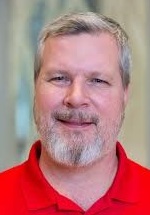
J. Arbuckle
Iowa State University
J. Arbuckle Iowa State University J. Arbuckle is professor and extension rural sociologist at Iowa State University. His research and extension efforts focus on improving the environmental and social performance of agricultural systems His primary areas of interest are drivers of farmer and agricultural stakeholder soil and water conservation behaviors, especially related to climate change adaptation and mitigation. He is director of the Iowa Farm and Rural Life Poll, an annual survey of Iowa farmers.
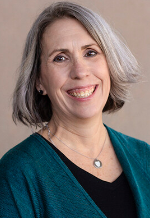
Deborah Bathke
University of Nebraska
Dr. Deborah Bathke is a climate scientist and Research Associate Professor at the University of Nebraska–Lincoln. She has extensive experience with drought management experience, having served as New Mexico’s Assistant State Climatologist and Chair of the Drought Monitoring Working Group. Currently, Dr. Bathke works for the Natural Drought Mitigation Center and is a part of the Program Implementation Team of the National Integrated Drought Information System. She supervises ongoing student research on urban landscaping and drought, and works with graduate students in the Department of Natural Resource Sciences. She has also taught a number of undergraduate and graduate courses. Dr. Bathke grew up in Nebraska and attended the University of Nebraska–Lincoln for both her BS in Geoscience and her MS in Meteorology/Climatology. She received her Ph.D. in Atmospheric Sciences from Ohio State University.
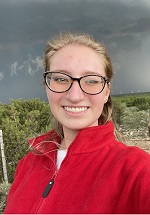
Grace Campbell
University of Nebraska
Grace Campbell is a climatologist working at the National Drought Mitigation Center as a Research Assistant. Grace specializes in the intersection between weather/climate and agriculture/natural resources, and is driven by the desire to increase the resilience of our ecosystems in the face of a changing climate through research and outreach. Outside of work, she enjoys spending time outdoors, cooking, reading, and travelling.
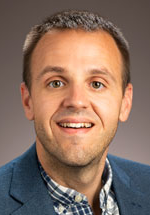
Trent Ford
University of Illinois - Urbana-Champaign
Trent has expertise in hydroclimatology and climate extremes including drought and heat waves. He leads work to better understand water movement between the land and atmosphere, how these processes create or worsen extreme weather, and how we can better monitor and predict societal impacts. Through his work as the Illinois State Climatologist, Trent has significant experience in stakeholder and decision maker outreach and communication of climate science. He regularly engages with communities, industries, and local to federal level agencies in Illinois and the Midwest in hazard early warning, preparedness, and mitigation, and helps to identify climate solutions from local to global scales.
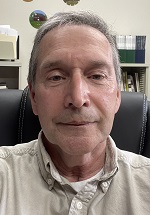
Duane Friend
University of Illinois - Urbana-Champaign
Duane Friend is the State Master Naturalist Coordinator and Climate Specialist with University of Illinois Extension. In this position, he provides educational programs on climate, weather, and soil quality topics, along with state guidance for the Illinois Master Naturalist program. He has been with Illinois Extension since 1993. He is a member of the Association of Natural Resource Extension Professionals (ANREP), the Soil and Water Conservation Society, the Alliance of Natural Resource Outreach Professionals (ANROSP), and the Illinois Extension Agricultural Association (IEAA).
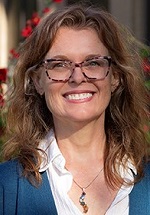
Tonya Haigh
University of Nebraska
Dr. Tonya Haigh is a Research Assistant Professor in SNR and the Social Science Coordinator and Project Coordinator for the National Drought Mitigation Center. Her research focuses on the adaptive capacity of agricultural producers and others to cope with drought. She is interested in connecting social science with climate science by informing the development of stakeholder-driven resources and tools. Tonya has worked with ranchers, advisors, and researchers to develop the Managing Drought Risk on the Ranch website ( https://drought.unl.edu/ranchplan) and has provided social science expertise to the development of climate decision support tools for Corn Belt producers and specialty crop growers.
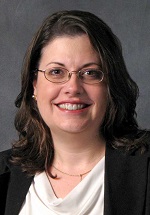
Beth Hall
Purdue University
Dr. Beth Hall is the Director of the Indiana State Climate Office, Midwestern Regional Climate Center, and manager of the Purdue Mesonet. With over 25 years of climate services experience, she has dedicated her efforts toward identifying opportunities for climate data to be transformed into decision-support tools and resources for a variety of sectors across the Midwest including agriculture, urban flood management, and public health. Her research interests throughout her career have focused on climate applications and operational climate tools for stakeholders and decision-support needs.
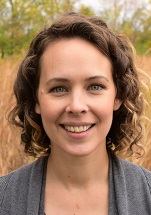
Laurie Nowatzke
US Department of Agriculture
Dr. Laurie Nowatzke is the Coordinator of the Midwest Climate Hub in Ames, Iowa. In this role, she maintains the Hub's partnerships, coordinates interdisciplinary projects, and communicates current tools and resources on climate-smart strategies. Prior to joining the Hub, Laurie served as a project coordinator of water quality research and outreach at Iowa State University. Laurie holds a B.S. in biological sciences from Wright State University, a M.A. in environmental policy from Boston University, and a Ph.D. in rural sociology from Iowa State University. Her Ph.D. research examined the perspectives, barriers, and attitudes of Midwestern farmers who indicate willingness to adopt conservation practices in the future.
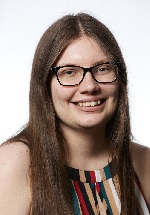
Elizabeth Ortiz
Iowa State University
Elizabeth Ortiz is a master's student studying Sustainable Agriculture at Iowa State University. She grew up in Arizona and studied Conservation Biology and Public Relations at Arizona State University before coming to the Midwest. Her research at Iowa State analyzes social science research on Midwestern farmers’ climate change perspectives and adaptative and mitigative behaviors. This research will inform specialized outreach approaches through partnerships that connect university research, extension, and farmers. Her interests are at the intersection of wildlife conservation, agriculture, and social dimensions.
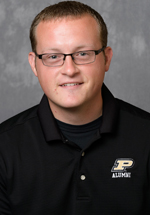
Austin Pearson
Purdue University
Austin Pearson, a climatologist with the Midwestern Regional Climate Center and Indiana State Climate Office, earned his MS and BS in Applied Meteorology and Climatology from Purdue University. Prior to joining climate services, he served as a Purdue Extension Agricultural and Natural Resources Extension Educator focusing on digital agriculture and climate initiatives.
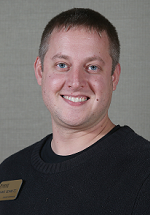
Hans Schmitz
Purdue University
Hans Schmitz received his B.S. and M.S. degrees in Agricultural Meteorology from Purdue University. He previously had roles in various counties over 15 years with Extension, before transitioning to serve as Conservation Cropping Systems Agronomist for the state. His expertise lies at the nexus of soil health and climate smart agriculture. Hans lives in Cynthiana, Indiana, with his wife, Cindy, and two children. In his spare time, Hans manages the family farm, a sixth-generation grain and cattle operation.
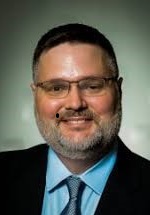
Aaron Thompson
Purdue University
Aaron Thompson is an Associate Professor of Landscape Architecture at Purdue University whose work emphasizes the power of place-based planning to support community land use, recreation, and conservation decision-making. Integral to his teaching and research is an applied landscape planning approach that incorporates social-ecological science into the design process to create landscape transformations capable of balancing the needs of human and natural systems. He is currently working on projects building geodesign tools to support forest conservation planning, developing innovative community capacity approaches that respond to the challenge of water quality management in the Great Lakes basin, and providing design and research support to sustainable development projects enhancing the future of the Midwestern landscape.
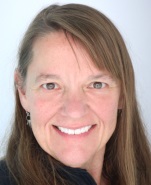
Amy Thompson
Purdue University
Amy Thompson serves as an Extension Specialist with Purdue Extension’s Diversified Farming and Food Systems. With over two decades of experience at Purdue Extension, she has been dedicated to offering education and assistance to various stakeholders, including small diversified farm operators, novice farmers, homeowners, and specialty crop producers. Amy plays a pivotal role in organizing Purdue's yearly Indiana Small Farm Conference, drawing participants ranging from food systems organizations to urban producers and individuals aspiring to develop farming operations.
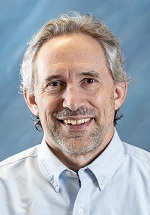
Dennis Todey
US Department of Agriculture
Dennis Todey is the Director of the Midwest Climate Hub in Ames. He is a native Iowan with his BS and PhD from Iowa State in Meteorology and Agricultural Meteorology. He has spent two stints in South Dakota, first completing his MS at the South Dakota School of Mines and Technology and most recently as Associate Professor and State Climatologist for South Dakota at South Dakota State University. He is well known regionally as a speaker and media source on various climate issues and is the former president of the American Association of State Climatologists.
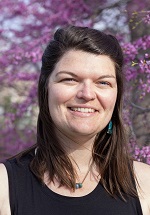
Kelsey Varisco
University of Nebraska
Kelsey is a Social Scientist at the National Drought Mitigation Center at the University of Nebraska. In this role, she engages and connects with local communities and collaborates with climate experts on drought resilience projects. She holds a Master of Arts in Latin American Studies with a focus in Environmental Governance and Resilience. She has experience working with nonprofits, local city government, and universities. She strives to contribute to more equitable and inclusive spaces.
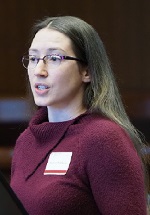
Melissa Widhalm
Purdue University
Melissa Widhalm is the Associate Director and Regional Climatologist at the Midwestern Regional Climate Center (MRCC), located on the main campus of Purdue University (West Lafayette, Indiana). For over 15 years, she has worked to improve the usability of climate information for various sectors in the Midwest, including agriculture, water management, conservation planning, and more. Ms. Widhalm is passionate about delivering high-quality climate resources, science communication, and climate data services.